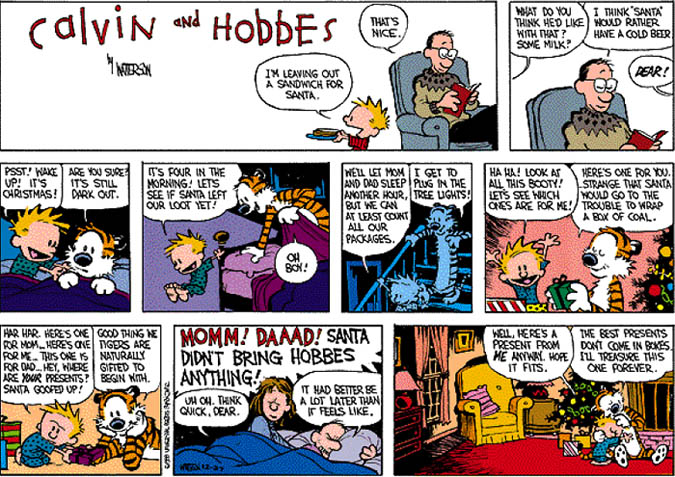I guess I need to start off by saying that I really don't enjoy going home for the holidays. It inevitably means more work. It means dealing with mixed feelings for my parents, taking care of visiting relatives, preparing meals, and convincing Gramps that it would be better if he would simply let people help him in his old age. I means traveling long hours my car and by plane, late nights, and anxiety.
Yet, this year I took it all in stride and kept reminding myself that how I give service during this time is perhaps more important than the fact that I do.
One of the things I tried to do in increase the quality of the time and the activities we did. On Christmas Eve we read from Isaiah 9:6-7 , Luke 2, and, from the Book of Mormon, 3 Nephi 1. We shared some thoughts about experiences we had and how they shaped our understanding of Christmas, kept it simple, and called it a night.
Sure, I did the normal stuff too like putting up the tree, hanging the stockings with care, putting lights up on the eves, and baking an inordinate amount of food.
All those things help the house look festive, but the truly important things I wrote down in letters I included in the simple gifts I gave. Its not important what the gifts were - its what they represented. For my younger brother and sister, Steven and Diana, I gave them things that were forward-thinking, that would help them think about the future and measuring-up to the responsibilities that will be theirs. To my parents I gave something that I hoped would help them understand me better since miscommunication is the greatest fault in our family. For my younger brother Trent (Elder Hood), who is serving God and His children in Thailand, I was able to put together a three-way Skype call.
For Gramps, I hosted all the family so that he could be around his children, grandchildren, and new great-grandchild and made a list of things he'd like to do while I'm here in California with him. We went to the greatest park known to man:
to the Los Angeles Temple, viewed the lights,
...and toured the new visitors' center:
Exhibit D: I love this!
and, last but certainly not least, I started editing his autobiography.
Now, as things are winding down, I'm reflecting on lessons learned and realizing that the effort everyone made to have quality time, to share sincere thoughts, and simplify the season really payed off.
Funny...Calvin actually understands this lesson too...








